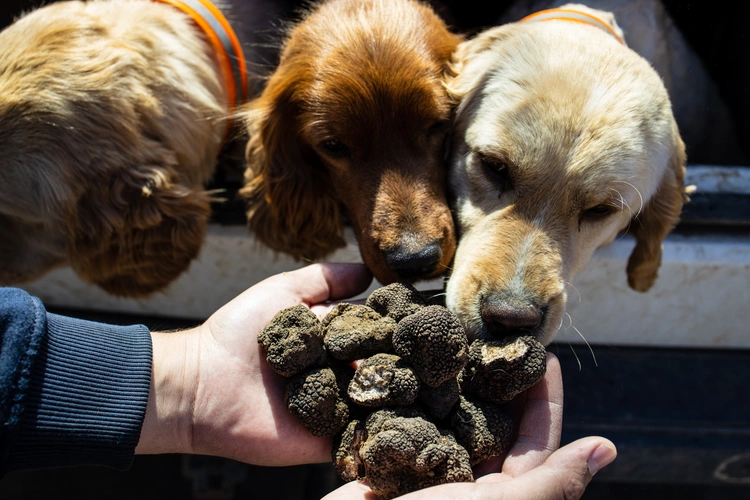One sunny summer afternoon in 2012 I had the most expensive lunch of my life.
Kathleen, the kids, and I were taking a driving tour through Italy, Austria, and Croatia. The Croatia leg was to check on the old stone house we own in Istria. We arrived in the nearest town, Livade, around lunchtime.
Livade is a tiny place with a big claim to fame: this is the center of Croatia’s truffle region. Walking through the lobby of the town’s only restaurant we saw, in a glass case, an enormous bronze truffle—the world’s biggest, according to Guinness (or so the sign attached indicated).
Reviewing the menu, we saw that every item on it featured truffles…
Truffle soup, truffle pasta, truffle sauce on the pork chops…
We observed truffle shavings garnishing every plate that came out from the kitchen, and, after we’d been served, the waiter came around the table to ask us each if we’d like more truffle grated onto our meal for good measure.
The food was excellent, but the bill for the four of us was 350 euros… just for food.
I’ve had more expensive dinners out, sure, but those were in fancy city restaurants with wine and cocktails.
I knew of truffles before that lunch and understood that they are expensive, but I didn’t realize just how expensive…
Truffles have always been a high-priced delicacy, but the supply and demand curve has made them into one of the world’s most valuable agricultural crops…
A single truffle was auctioned at Sotheby’s in New York in 2014 for US$61,250… it weighed only 4 pounds.
Today, these “diamonds” of the culinary world are so in demand that cautious restauranteurs store them in safes.
Truffles are more popular today than ever before in history. In recent years, they’ve entered the mainstream food market rather than the usual high-end restaurant scene.
More than 100 years ago, thousands of tons of truffles were collected on an annual basis… so what happened?
Then, World War I destroyed the plantations, while nearly all of the farmers and their expertise were lost as war raged on across the continent.
Next came changes in climate and land development.
As a result, by 2019, the annual global truffle harvest figure had fallen to just 60 tons. It’s been rising in the years since, with further growth forecast.
Still, demand continues to outstrip supply and according to analysts this market is poised to grow by $460 million by 2033.
Truffle Opportunity In Spain Pays Out US$752K Over 30 Years…
A truffle is a fungus that grows underground. Leaving them to develop without help in new plantations would add many years to the growth cycle.
This outstanding demand is why I was excited to discover a truffle plantation that is backed by serious science.
The specific science involved isn’t available to just anyone wanting to start a truffle plantation. These developers have worked with a dedicated lab for years to refine it, and they keep it private and well protected.
The team I’m working with has put together a 100% turn-key truffle investment deal.
Everything is managed for you…
The science, the planting, the harvesting, and the distribution and sales.
Cash flow starts in year three, thanks to the science involved, which helps the truffles produce more quickly than they would otherwise. The annual payouts increase every year thereafter…
Your total pay-out over 30 years boasts a 1,032% return on investment.
Truffle demand is only growing… and we have just seen how well the truffle market preforms in times of crisis, with prices reaching record highs…
When I had to decide between a big purchase on a bloated Wall Street versus this truffle farm, it was an easy choice…
I bought an investment here myself a few years ago and along with earlier investors have received the first payout.
Now it’s your turn.
Join me tomorrow, Feb. 27, for a special webinar with our contact on the ground, the developer behind one of Europe’s leading truffle farms, to find out how you can get in on this proven, stress-free way to weather future financial storms.


